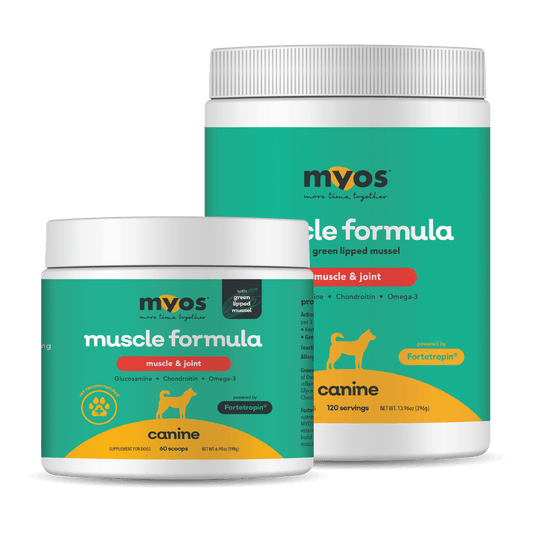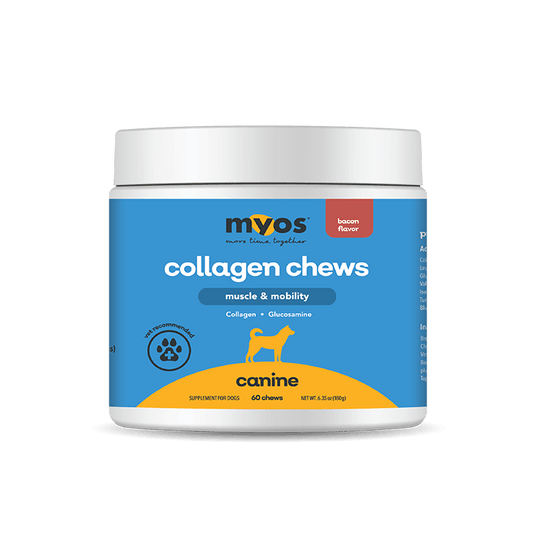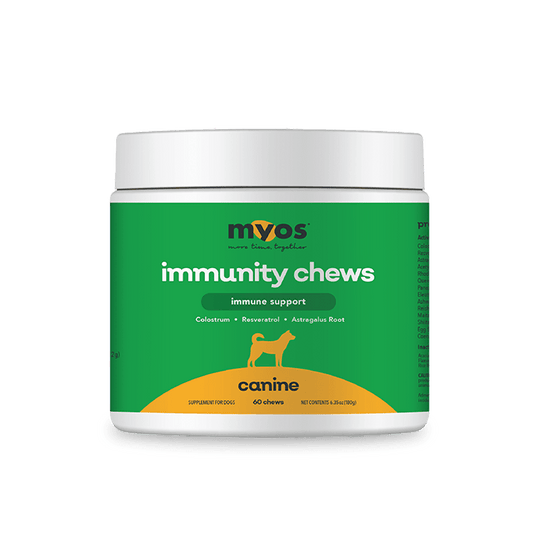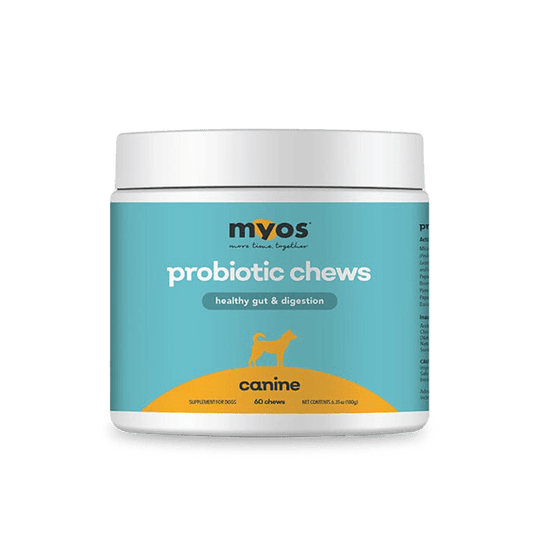When people think of working dogs, they might picture K9s in law enforcement, search and rescue, or service roles. But there’s another group of canine athletes working tirelessly in a different field. Stock dogs are the backbone of many farms, moving and managing livestock with precision, stamina, and skill.
For the first time in our 'Day in the Life of a K9 Handler' series, we’re looking into the agricultural world with Kellie Hunter, owner of Hunter Farm and BorderCollie Stockdogs in Alabama. Kellie raises and trains Border Collies for farm work and competes in stock dog trials across the country. She is also a member of the MYOS team, bringing a new perspective to how working dogs in agriculture benefit from muscle health support.
From Horses to Herding

Kellie’s journey into stock dog work began over a decade ago while she was training show horses. While working cattle in her training program, she found herself without riders to help turn the animals — and she found herself with a pair of Border Collies instead. Those two dogs sparked a lasting passion for Kellie and her journey with stock dogs began.
Not long after, she acquired her first trial dog — unexpectedly — and quickly fell in love with the work. Within two years, she had purchased sheep, transitioned from horse training to full-time sheep farming, and started raising commercial production sheep. She learned quickly what qualities a true working dog needed: athleticism, intelligence, independence at long distances, and the ability to work as part of a team.
The work was demanding. On her previous farm, she raised a couple hundred head of sheep at a time, requiring dogs that could go out all day and handle the job with stamina, grit, and cooperation.
What Happens at a Stock Dog Trial
Stock dog trials showcase the same skills these dogs use on the farm, but in a controlled, judged setting. A trial run often begins with an outrun, where the dog leaves the handler’s side and makes a wide arc to approach the livestock from behind without disturbing them. At the lift, the dog reads the situation and calmly picks up the stock, bringing them toward the handler in the fetch.
From there, the team navigates a series of gates and obstacles, drives the livestock away and across the handler’s position, and finally into a shed ring, where the dog separates specific animals from the group. The run ends with the stock penned, all while showing control, precision, and respect for the animals.
These skills aren’t just for the competition field — they’re essential on the farm. One skilled dog can do the work of five people, bringing in sheep for health checks, sorting, or moving them between pastures. The key is that the dogs are kind to the stock, moving them efficiently without stress or injury.
The Role of Training and Purpose

Kellie told us that stock dogs are typically exposed to livestock as early as eight weeks old, though formal training typically begins between 10 months and a year. The breed’s natural instinct to gather sheep is a big reason why Border Collies are considered the elite herding dog.
Kellie works primarily with hair sheep, though her dogs also work cattle on a smaller scale. In production farming, well-trained stock dogs are a crucial part of ensuring livestock are handled properly — an often unseen but vital step in the process of feeding America.
Fueling the Muscle Behind the Work
Kellie began using MYOS Canine Muscle Formula five and a half years ago with her first trial dog. That dog is now 10½ years old, still works daily, and continues to compete across the country.
Over time, she added MYOS to the routine for all of her dogs. The difference was clear — without it, older dogs lost muscle condition more quickly, and younger dogs lacked the same vibrancy and stamina. While Kellie's dogs are fed a high-quality diet, MYOS helps provides the extra muscle support needed for the physically demanding work.
Stock dogs use nearly every muscle in their body when working — from the explosive sprints during outruns to the crouched, controlled “style” many Border Collies display when guiding stock. MYOS has helped Kellie’s dogs recover faster, maintain muscle mass, and continue performing at a high level well into their senior years.
Continuing the Work
Kellie told us that she trials through The United States Border Collie Handlers Association (USBCHA) while continuing to train working Border Collies for farm life. Whether she’s on the trial field or in the pasture, her focus is on maintaining strong, healthy dogs capable of doing their job with skill and respect for the livestock they handle. For her, success isn’t just about winning competitions — it’s about partnership, longevity, and giving her dogs every tool they need to thrive.





